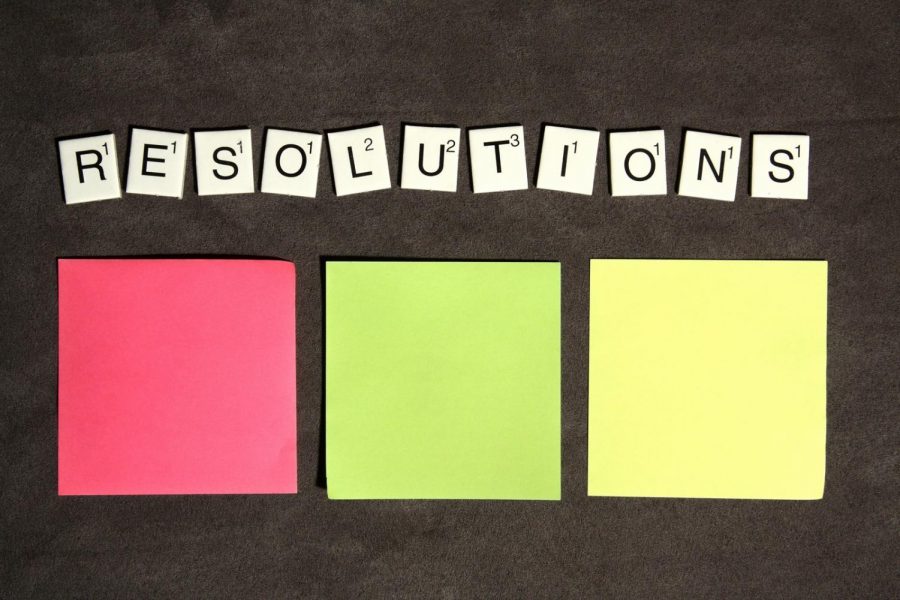Analyzing the Effectiveness of New Year’s Resolutions
Every year, millions of Americans set new goals for themselves in order to live their best lives in the new year. But has anyone ever wondered if this is actually a helpful activity for people to do?
There is nothing wrong with making resolutions. Setting goals is actually a great idea, and if you write them down, you are 42% more likely to achieve them, via Inc.com. It keeps you motivated and constantly aware of your ambitions.
However, most New Year’s resolutions are almost always “doomed to fail,” according to MDAnderson.com, because “it takes a lot more than a resolution to change,” (2). So if you have lots of motivation, it could be a good idea to get a post-it note and write your goals down, because only 19% of those who made a resolution actually followed through within a two year period (3).
If you are only creating resolutions because you feel obligated to do so, do not worry. You do not owe anyone “self improvement,” and should feel comfortable making changes when you want on your own terms.
Very popular resolutions that occur year after year are the goals to lose weight, exercise more, and eat healthier. In a 2019 survey done by YouGov, 48% of Americans wanted to lose weight, 59% said they wanted to exercise more, and 54% said they wanted to eat healthier (4). Many businesses, such as gyms and weight loss providers, advertise sales or reduced monthly payments in order to capitalize off of individuals looking to accomplish these goals.
The bottom line is that no one should feel forced to change their appearance if they do not want to. While wanting to improve your health is a positive thing, anything in excess is a bad thing and can lead to negative habits and behavior patterns that will be a lot harder to reverse in the future.
New Year’s resolutions can definitely have their positives and force self-reflection and accountability for individuals looking to improve during this fresh start. However, there is data repeatedly pointing to the ineffectiveness of resolutions. Setting healthy goals on your own terms at any point of the year can be a much more effective avenue for self-growth and positive change.
- https://www.inc.com/peter-economy/this-is-way-you-need-to-write-down-your-goals-for-faster-success.html#:~:text=The%20results%3F,tasks%20necessary%20for%20your%20success.
- https://www.mdanderson.org/publications/focused-on-health/are-new-year-resolutions-bad.h33Z1590624.html#:~:text=%E2%80%9CMost%20New%20Year’s%20resolutions%20are,a%20resolution%20like%20losing%20weight.
- https://bestlifeonline.com/people-sticking-to-new-years-resolutions/
- https://www.performancehealth.com/articles/how-to-keep-your-new-years-resolution-weight-loss#:~:text=Sign%20up%20to%20receive%20the,to%20a%20survey%20by%20YouGov.&text=Other%20popular%20resolutions%20included%20exercising,and%20eating%20healthier%20(54%25).
Your donation will support the student journalists of Parkland High School. Your contribution will allow us to purchase equipment and cover our annual website hosting and printing costs.

Gabby is a senior, and this is her second year writing for the Parkland Trumpet. She enjoys writing about politics and current events. She is...















